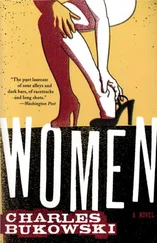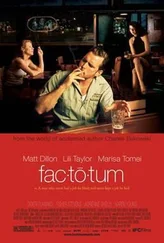Deblinda Big Black was out there, too, although she may have been calling herself Rosa, Heather, or Whisper. She was sitting on the arm of a long-discarded couch that sagged in the dirt and was bereft of its cushions. A bunch of younger types were also there, pubescents and adolescents, eyes closed, knees pulled to their chests, talking low and passing a pipe. Deblinda was five feet five inches, 116 pounds, with a birthmark under her right eye, and was known in her conservative hometown of Troutdale, Oregon, for the outrageous act of piling on the black eyeliner. Deblinda had attended Turtledove Catholic High School, where teachers described her as sullen, and students referred to her as a freak. On May 18 of this year, at approximately three fifteen P.M., Deblinda had called her mom to let her know she would be home after drama tryouts. However, Deblinda had neither come home nor returned to school. The last time Deblinda had run away, she'd been missing for two months before authorities discovered her in an apartment complex in Medford, Oregon. She'd been found in the company of a thirty-one-year-old Caucasian male, who at the time was in possession of a.45 caliber automatic pistol, a weapons permit, five sheets of homemade acid, and materials that might be helpful in manufacturing crystal meth. Deblinda's purse was found to contain matchbooks from bars in Sheridan, Wyoming, as well as a blank postcard from Devil's Canyon — which, Lestat guessed, was where she'd met Danger-Prone Daphney, their friendship catching fire in a manner not all that different from the way Daphney had taken to that little bald girl tonight. Deblinda, or Whisper, or whatever she called herself, looked the worse for wear on that couch, Lestat thought. She had lost a disturbing amount of weight, and her pallor was sickly, a pale bluish green. Plus something had happened to her jaw; it was no longer properly aligned, but veered dramatically to the right side. Just moving her mouth looked like it caused her a great deal of pain. Maybe that was why everyone called her Whisper.
Lestat continued his quest, heading up the sandy incline, not thinking so much about the call he was going to make now, but remembering, getting lost in the experience of moving and being transitory, making his way through winding and graveled and mud-filled roads, looking out for the nearest gas station hoses, for back alley spigots, for the flashing lights of a speeding police car. Lestat had waited out thunderstorms in the dim game rooms of rural bowling alleys, and he'd trembled in the wake of semis going so fast they made the ground vibrate, shook the morning dew from the grass. One night that seemed not all that long ago, Lestat had found shelter in an abandoned shanty of a farmhouse that was situated right beneath a bunch of power lines. Another time he'd picked grapes with illegal aliens in a field for sixteen hours, receiving twenty bucks for his efforts. Lestat regularly followed delivery trucks at five in the morning, stealing newspapers the minute they'd been laid down on lawns; he stood on thoroughfare medians and sold those papers to morning commuters. Just about anywhere you went, the grocery stores left stacks of folded-up cardboard boxes right behind the trucker ramps, and if you made sure to have a box or two with you, then when you took a break and sat on the sidewalk, your ass would not get sore. Lestat kept a ninety-nine-cent black marker on hand so he could turn that supermarket cardboard into a sign that might help get him a ride, traveling on whims, traveling with specific purpose; staring out through a bus window at desolate landscapes, balling himself up in the back of pickup trucks and turning up the collar on his heavy peacoat. One memorable afternoon, Lestat had wandered a hiking trail in some unnamed forest, and the shafts of sunlight had poured down through the spaces between the leaves and branches, and the rustling wind had been loud enough to make him think a plane was taking off. Birds that he could not see had had some sort of careless dialogue among themselves, and as Lestat had listened to them, he'd stared contemplatively at how moss was growing along the barks of fallen trees, and for a time, he'd felt a deep and abiding tranquility, a peace whose very idea under normal circumstances he would have denied and ridiculed; and the beauty of this peace had about justified everything Lestat had been through.
But moments where the solitude actually worked for you, these were few and far between. When you were alone as much as a runaway was, you lived beneath the crushing weight and breadth of a freedom where there was nowhere specific to go, no one to turn to or rely on; a freedom without restraint or responsibility, that was both empowered and burdened by the realization that you did not matter. If you didn't keep yourself collected, something as random as the bright red innards of roadkill could send you spiraling. It got so bad that even with the day's paper right in front of him, Lestat still couldn't keep track of the day of the week. Meanwhile, there was no such thing as a fast-food assistant manager who was comfortable with a runaway stinking up his booth (no matter how many apple pies you bought, they didn't want you). Clerks shooed you out of quick marts; rental cops pulled you from department stores. The real pigs rousted you from park benches. You had to avoid the social workers, the Jesus freaks, and most important, the shelters for runaway teens — rumors circulated of girls raped, of brutal beatings, and on top of that, the guys who ran the place were inevitably pervs, they fondled boys. Arrest and juvenile detention centers were constant threats. Deportation loomed at the end of every distant siren. Time and all its emptiness worked against you, simultaneously propelling and chasing you. The best antidote Lestat had come up with, the only way to prevent all the threats from swallowing him, the only way to stop his experiences from fusing together, was to try to fully involve himself, to engage, utterly and completely, with whatever came his way. As Lestat humped and hitched rides and sat in doorways; as he waited for some guy to get back from someplace, to meet up with him, to direct him to some other guy who might put him up for a while (so long as he didn't mind sleeping on a floor); as he waited for the solution of his next meal or just for the rain to ease up, there was always the odd detail, the memory poem, not necessarily exciting, but involving: the next sentence of the letter he was composing in his head (to each parent, to every single one of his unrequited loves), the knot where a scam or swindle hadn't worked out so well, ins and outs, new twists and options and things he could have done differently.
He could close his eyes right now and recall the great Victorian mansion. Most of New Orleans still was a wreck, but the garden district had remained untouched, and the French Quarter, too, and the gated home had appeared so stately and ominous to Lestat. Lestat hadn't talked to another human being for three consecutive days at this point, and something like eleven of his previous fifteen had been without significant human contact, but his three-state journey had been completed, and he'd buzzed and buzzed. And hadn't it been a thrill when a voice answered him? Hadn't it been a moment to remember? Through the speakerphone, Lestat had learned that Anne Rice does not live here anymore. She has sold the house and moved to California. These were the things that stayed with you, you didn't even have to try to remember. On a bench in Jackson Square park, with the rest of a long and humid day ahead of him, Lestat had slowly eaten through a dozen crawfish served in a paper basket, and he'd thought about the recklessness and foolishness of hiking halfway across the country to meet Anne Rice. He'd thought about the things he'd wanted to ask her and then he'd seriously considered whether, in all honesty, Anne Rice would have been able to help him, even if she hadn't moved across the country. Lestat had started to worry about where things were going for him and what he was going to do next, and then a wailing had surprised him, the shock being that the cries were not coming out of his own throat, but from another bench. This chubby chick. Bawling up a storm. People were turning their heads to watch, but Lestat was the only person to go up to her. He approached with the intention of telling her to shut the hell up, but they'd stolen her dog, was the thing. Those bastards had cut her dog's leash from off her wrist while she was sleeping. Lestat had calmed her as best he could, but this chick was a life force, loud and manic and in no condition to figure out what she had to do next. It had been easier for Lestat to concern himself with her problems. It allowed him to delay his own. Lestat had tracked down the nearest police station, and he'd learned that this crazy chick's hound had indeed been found. Whoever had stolen the dog must have had more on their hands than they could deal with because they'd abandoned the dog. A morning jogger had come across it, but by that time the animal was scared and distrustful. It had taken good chunks out of the jogger, and put up quite a struggle when the humane society arrived. The upshot being the chick's dog was scheduled for destruction. The chick had the dog's papers, its registration, and its record of vaccinations, but policy was policy. Even when Lestat used his emergency quarters and tracked down a public advocate who would listen, there weren't a lot of legal options. In the end, all the advocate had been able to do was help register a new dog from the pound — a playful brownish-gray mutt. Which is how Lestat had met Danger-Prone Daphney. Lestat remembered the whole thing like it was still happening.
Читать дальше











